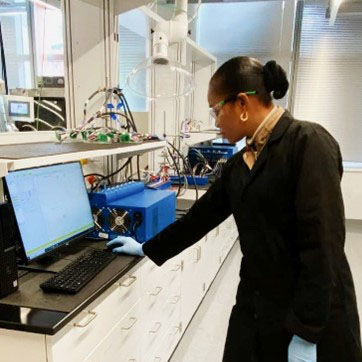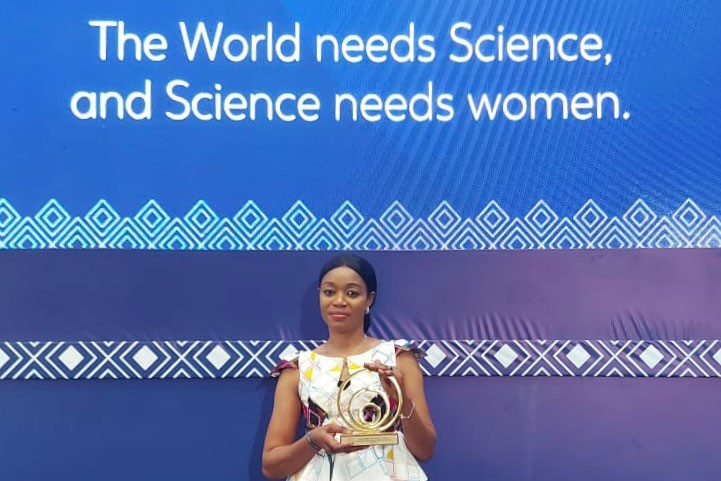Ndeye Maty Ndiaye
Schlumberger Foundation Faculty for the Future Fellow
L’Oreal-UNESCO For Women in Science Fellow
Université Cheikh Anta Diop de Dakar, Senega
 Maty Ndiaye in the Nanomaterials Group lab
Maty Ndiaye in the Nanomaterials Group lab
The Schlumberger Foundation is a nonprofit organization that supports science and technology education. Its flagship program, Faculty for the Future, seeks to accelerate gender equality in STEM and awards fellowships for advanced research in STEM at leading research institutes. In addition to being a Schlumberger Fellow, Maty is a L’Oreal-UNESCO For Women in Science Fellow and recently received the L’Oreal-UNESCO International Rising Talent Award.
Please describe your research.
I am working on the electrochemistry of MXenes and lithium-ion battery anode electrodes. MXenes present unique properties including layered morphology, high electronic conductivity, high hydrophilicity, rich surface chemistry, and low ion diffusion resistance, which promise new and interesting electrochemical behavior in supercapacitors and batteries.
What brought you to Drexel to work on your research?
To gain a solid and efficient knowledge of MXenes materials in an energy storage system (lithium-ion batteries) from the dynamic group of Professor Yury Gogotsi at Drexel University. This training will be crucial to building a solid career.
Tell us about something in your research work that you are particularly proud of/excited about.
After obtaining my PhD at the University of Pretoria, South Africa in 2019, I went back to my home country Senegal to focus on a simple synthesis of nanoparticles using natural products (waste, flower, leaves etc..) for supercapacitors applications.
 Maty with her L'Oreal UNESCO award
Maty with her L'Oreal UNESCO award
As a Sub-Saharan Africa Young Talent for the L’Oréal-UNESCO For Women in Science Fellow Program, I am immensely proud to receive several tools for the synthesis and characterization of MXene materials and the formulation and preparation of electrodes in Lithium-ion batteries. MXene materials were recently discovered by the group of Professor Yury Gogotsi, and this places me on the spot of the latest development in materials sciences and engineering.